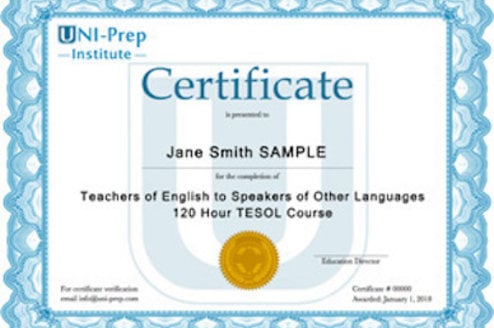Teach English in Mali
Teaching Programs in Mali
About
As of June 2018, the U.S. Department of State has issued a travel advisory for Mali, advising travelers against visiting Mali. Learn more on the travel advisories list and be sure to register for the STEP program if you are a U.S. citizen planning to teach abroad in Mali.
Confession: I always assumed when people said “Timbuktu”, they were referring to a pretend land. Well guess what: “Timbuktu” not only exists, but you can even teach English there! All you’ve got to do is head to Mali in West Africa. English is not taught in many schools as French is generally the second language. However, the need for English teachers is growing (though still quite small) as Mali breaks into the global market.
Northern parts of the country are, at the time of writing, occupied by terrorist rebel forces, which has caused the U.S. Department of State to issue travel warnings for Mali. If you are indeed interested in still teaching in the country (which has lots to offer despite its problems, and a great need for teachers because of its problems), we suggest you research the current climate fully.
Photo credit: TREEAID
Job Types
International Schools:
The American International School of Bamako, Bamako Christian Academy, and Bamako International Academy are the three major international schools in Mali. They are often for wealthy students and children of expats and missionaries. These schools generally have the highest pay and provide good benefits, including accommodations.
Nonprofit Organizations:
There are several nonprofit organizations that offer supplementary classes to teach English to both children and adults. Pay for these is minimal and often, they are entirely volunteer based.
Finding a Job
When and Where to Look for Jobs:
The school year begins in late August and ends in early June, so summer is the best time to look for jobs (though some schools start hiring much earlier, especially international schools). Teachers in Mali quit somewhat often, though, so hiring does occur year round, as needed.
Qualifications:
The main qualification for teaching in Mali is patience and drive, as the country lacks many resources, schools are often overcrowded, and education improvement is still very much in the works. For some organized programs, though, you will need a TEFL certification. To work at international schools, you will most likely need teaching experience as well. Knowing French is also a plus. It is best to ask the specific employers what qualifications are necessary for given positions to be sure.
Need to Know
Salary & Cost of Living:
Cost of living in Mali is low compared to the U.S., but it is mid level compared to other African countries. A one bedroom apartment in the city center will cost about $70 per month. Utilities is a whopping $200 per month, but internet only costs $2. Monthly transportation is about $30, and groceries will run you about $120 each month.
Salary depends a lot on where you work, with international schools paying the best. Housing is sometimes provided by employers, which is a nice cost not to have to worry about.
Classroom & Work Culture:
- Student/Teacher Relations: Students are respectful of their teachers (and of elders in general). They address teachers as “Mr.” and “Mrs.” and avoid eye contact, which is a sign of respect.
- Dress Code: Much of the population is religious, so dress modestly when in public. For women, do not wear much jewelry.
- Greetings: Greetings in Mali are notoriously long. Though the begin with the Arabic “salam aleikum”, people then go on to ask each other all sorts of questions. During these greetings, you are not meant to look at the other person in the eye and putting your left fingers in the inner crease of your right elbow is considered a sign of respect.














